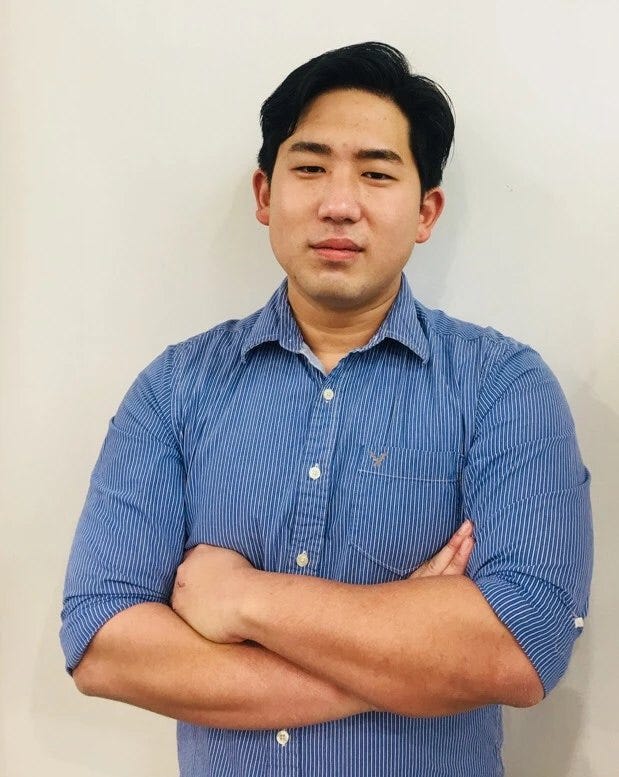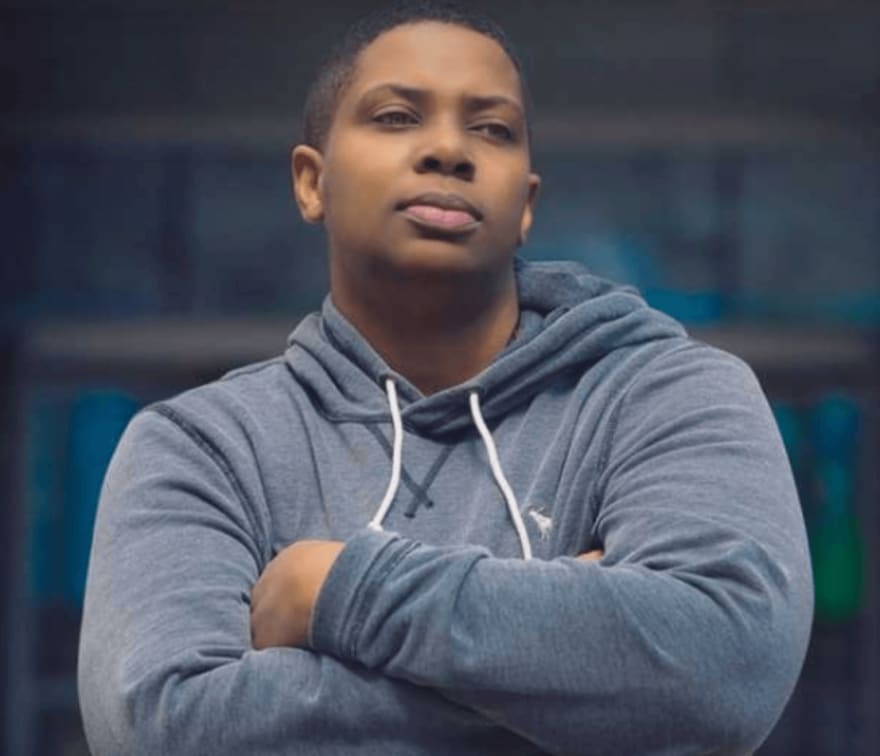No glossy pamphlets, no YouTube pre-roll ads, no random talking head from the marketing department: Welcome to the What Was It Really Like? series.
In this short but illuminating series, you’ll meet software developers who learned their craft from a variety of sources: from traditional college education, to self-paced video-based platforms, to coding bootcamps and beyond. How we learn to code is one of the most important stories we can share during our developer journeys.
Let’s meet the devs.
Name: Daniel Kim
Bootcamp: General Assembly (NYC)
Learning Track: Web Design Immersive (recently restructured to Software Engineering Immersive) — Full-Stack
Program Duration: 12 weeks
Payment: G.I. Bill
Socials: @devdanielk
The code camp set a great foundation and guideline to deep dive and learn the material.
I’ve fell into the tutorial pit where I’ve practically learned to be really great at copying and pasting from online free courses. Whenever I would want to actually utilize anything I learned, I couldn’t recall anything from the courses. Being in a live classroom also helps to bounce ideas back and forth between other like-minded individuals and enforce the programmer’s mentality.
Besides that, no real substantial knowledge prior to attending the boot camp.
I probably did “Hello World” in about 5 different languages […] thinking that was the way to learn programming.
I would definitely love to work for a company which I can continue to learn and build a mentor relationship at a company. That’s the first priority. There are so many directions a new boot camp graduate can go, so I definitely want to find my passion and see where the opportunities take me.
Name: Sarah Wylie
Bootcamp: New York Code and Design Academy (Philadelphia campus)
Learning Track: Web Development Intensive
Program Duration: 12 weeks
Payment:Income Share Agreement (ISA)
Socials: @wylies8
The most important thing I learned was how to learn.
I took a leap of faith and left the culinary world. I gave two weeks notice and the day after my notice the boot camp started. I didn’t look into any other boot camp — it was the first one that came up in my Google search and I just needed something, I needed the next step.
I entered the boot camp after attempting to study by myself and bouncing from tutorial to tutorial and not really having any direction. It taught me how to look for the problem and break down that problem into the tiniest sections to get to the solution. Another big part of the program was the camaraderie.
[The bootcamp] was more valuable in terms of teaching me what I needed to know but I could’ve achieved those same results for 20k less and finding a mentor. In hindsight, I do have a few regrets but they do not reflect the way I feel about the boot camps as a whole rather they speak on my personal experience with my boot camp.
I am still actively seeking a position, the coveted first role in the industry… It’s been almost a year out of camp and I am applying to try to network and get a role.
I want to be with a company where questions are OK, where I can actually contribute to the projects and somewhere that has seasoned engineers that I can look to as role models […] my biggest thing is continuing to gain knowledge. A respectful culture that gives back to the community in some way.
I want to be at a company that champions diversity that doesn’t hire people just to meet a quota but they seek diverse talent understanding that we are capable and qualified.
Name: Jamison Ordway
Bootcamp: Turing (Denver, CO)
Learning Track: Back End Engineering
Program Duration: 7 months
Payment: Mostly Out of Pocket
Socials: https://www.youtube.com/channel/UCl85QZYgH75EpaKr-1siiWg
Turing School is a non-profit organization. A lot of folks on staff were educators before entering tech or joining Turing, and I think the curriculum reflects that. I was also drawn to their mission of building an inclusive community, and providing their student body with the tools to be successful.
I learned so much outside of just Ruby and JavaScript.
I learned about and worked with SQL, Git, GitHub, debugging, HTML/CSS, continuous integration, test driven development, and agile to name a few. Outside of the technical stuff, there was also a lot of time committed to professional development. I gave several technical talks, brushed up my portfolio and resume, helped out with the school podcast, and worked on teams to turn in real-world projects.
The number one most valuable part of all of this, though, was that I learned how to have a good problem solving process.
Attending this program was absolutely more valuable than learning on my own (as valuable as that is). I explored code and did my best to learn for the better part of a year before starting Turing, and I learned more in the first two weeks of the program than I did that entire year on my own.
I think there’s something to be said for the structure and accountability that’s woven into the experience. It really pushed me out of my comfort zone and helped me just jump in and get started building things.
Make sure you’re ready for a huge commitment.
I was teaching myself to code before going to this bootcamp. I think that this experience helped me prepare for the ‘grit’ of getting through homework and assignments, but really I had no technical background to speak of. The most complicated thing I had built before starting the pre-work was a personal website, and that was just on CodePen.
Make sure you’re ready for a huge commitment.
If your program is anything like mine, you won’t have weekends or evenings to speak of until you graduate. I didn’t code 24/7, because it’s super important to take care of one’s health and take breaks too. However, I wouldn’t have been able to sustain a job or a hobby or anything like that. It’s only 7 months to learn (arguably) years worth of material, so prepare accordingly.
Name: Brittany Starr
Bootcamp: Hack Reactor (Remote)
Learning Track: Full-stack JavaScript
Program Duration: 3 months
Payment: Loan
Socials: https://www.linkedin.com/in/britstarr/
Startup: https://starlightglobal.io
Bootcamps are meant to be hard and if you’re not fully prepared to put in the work, you will be wasting your money.
I’d built websites and other things on and off from the time I was a kid. The websites were mostly fan sites on Geocities and the ‘other things’ were 100% Neopets or Livejournal related. But I never really learned anything because it was so easy to copy the code of someone who’d already done the thing I wanted to.
I remembered nothing from my childhood and teen years when I started on Codecademy in 2015, so it definitely did not give me a leg up in my learning. I will say, though, that I’d always had a mind for and been interested in tech. That probably helps.
I researched and tried out a lot of different platforms including FreeCodeCamp. My original goal was to see if I could get a loan to just take time off and put myself through FCC, but I knew enough about myself to be certain that I would need structure, a deep curriculum, and support. I needed to feel like I was in a program with other people. I liked that I had no choice but to focus on the program.
It was by far the best program of any I looked at. I applied to and got into other bootcamps, but [Hack Reactor] seemed like the most together program. It had the strongest curriculum of any program I researched. I really wanted to make sure I had good fundamentals when it came to data structures and algos. Also, a big part of the final decision was the career support. Other bootcamps either didn’t have that or they didn’t have a dedicated team to help students get ready for and be successful in the job search.
The program itself was full-stack so we learned things like data structures and algorithms and everything that goes with that, JS frameworks [and libraries] like React, plus Node, and databases, etc. Everything was crucial, but the most valuable part of the curriculum was the focus on mindset. There were lectures about how you can position yourself to be successful as a professional engineer. We paired to get used to how things can be in a professional environment. We did a ton of practice to prep us for things like behavioral interviews.
I just really can’t overstate how important the mindset part was.
I realized at the end of the program (and have seen a ton of other alum say this as well), the thing I really paid for was learning how to learn. On every team I’ve been part of, the teammates or leaders have been amazed at how fast I pick things up. To the point that I never fail to get a bunch of “Are you sure you don’t have any questions???” Slack messages when I take my first task or ticket. I’m an anxious person by nature, so knowing that I can jump into anything and find my way around has been invaluable.
I started my first job about 2 months after graduation. I worked freelance for the first several months and then took a full-time offer for my current job.
I feel like if you’re interested in (or skeptical of) bootcamps, you need to know that you must do research. This goes with anything you’re interested in, but particularly anything that’s a big financial and time investment. You need to first get clear on what you need out of a program and find out what programs meet your needs. Assuming they’re not answered on the website, contact the program directly with your questions, you can tell a lot about them by how they respond.
Come up with a template and reach out to alumni of that bootcamp on LinkedIn or at a Meetup, if it’s a local bootcamp. I’d note to never have expectations when you’re reaching out cold to someone, but be gracious and acknowledge that you have respect for their time. It’s easier to potentially connect with someone that way.
I also encourage anyone who thinks they may be interested in a bootcamp to just code a lot.
It sounds like a given, but I’ve seen a lot of people start various programs and then realize they were more in love with the idea of a future salary than they were with coding.
Whether a dev needs focused study, a new perspective, or something else entirely, coding bootcamps are but one option for aspiring developers.
As some of these devs explained, bootcamps are tough, but intentionally so. And just like Brit emphasized, if you’re thinking about going to a bootcamp (or are skeptical), research, research, research.
Thank you Daniel, Sarah, Jamison, and Brit for sharing your perspectives!
P.S. Check me out on YouTube where I talk about all things web development! 






Top comments (2)
I gotta say it, Candy. Seeing one of the only remaining dev-youtubers I’m still subbed to posting content on DEV is a real treat. Thanks for unknowingly contributing to me breaking into this field without a degree. 🤙
Oh wow!! Thanks James!